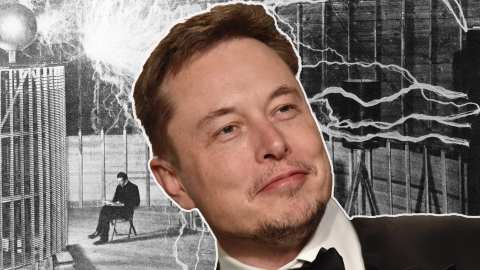Become a radical innovator, with Elon Musk

Reliability and innovation are the twin pillars of survival for any business. But it’s the rare company that’s willing and able to commit to rediscovering the leading edge on a daily basis. In the short term it’s often easier and more cost-effective to reinforce and build upon your successes. But in the long-run, any business without a pioneering spirit is destined to fall behind.
That’s why great leaders create time and space for bold, “blue sky” thinking. They allow themselves to dream—and they create the conditions in which others can dream big too.
Keep in mind that visionary thinking doesn’t happen in a vacuum. It builds upon the great innovations and errors that preceded it. Before boldly going where no one has gone before, you need to know where the best have already been.
Nikola Tesla: Futurist
Nikola Tesla was a pioneering scientist working at the turn of the 20th century. He is best known for his contributions to the design of the modern alternating current (AC) electricity supply system. Tesla was a physicist, mechanical and electric engineer, inventor and futurist, as well as the possessor of a near-eidetic memory. He spoke eight languages and held 300 patents by the end of his life. His legacy has experienced a major resurgence in recent years—the name Tesla, as you might have heard, is way in vogue right now—as many of his predictions about power and communication have come to fruition.
The quote below does well to show just how prophetic Tesla was. Here he basically sums up a modern smartphone… in 1926:
“When wireless is perfectly applied, the whole Earth will be converted into a huge brain, which in fact it is, all things being particles of a real and rhythmic whole. We shall be able to communicate with one another instantly, irrespective of distance. Not only this, but through television and telephony we shall see and hear one another as perfectly as though we were face to face, despite intervening distances of thousands of miles; and the instruments through which we shall be able to do his will be amazingly simple compared with our present telephone. A man will be able to carry one in his vest pocket.”
Elon Musk: Disruptor
Elon Musk named his electric car company after the famous inventor because the cars use AC induction motors, an architecture Tesla developed. Musk is also the founder of SpaceX, a private space company developing revolutionary reusable rockets, with big plans to colonize Mars in the coming decades. In this Edge lesson, he explains his philosophy of disruption, and why he thought a small start-up could take on the largest frontier of all: space.
Our culture mythologizes lone geniuses like Musk and Tesla, but disruption and a better future shouldn’t rest on just one person. Prioritize a culture of knowledge with video lessons ‘For You’ and ‘For Business’ from Big Think+. You can sign up for yourself right now, or request a demo for your organization.




